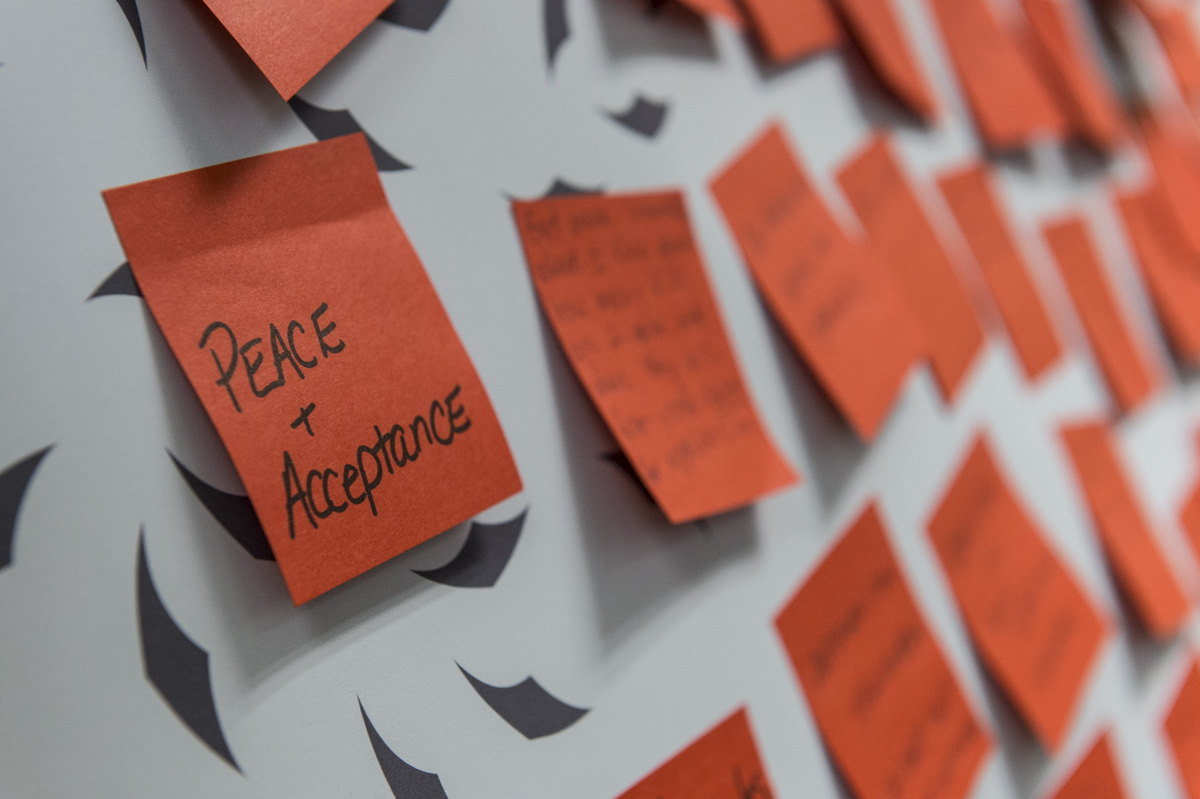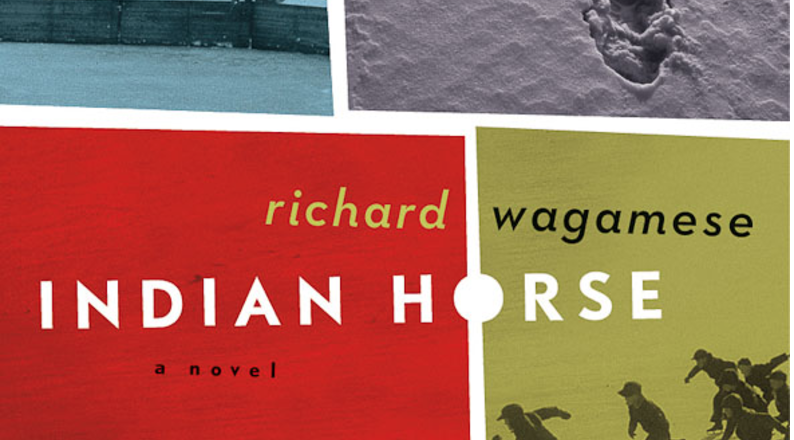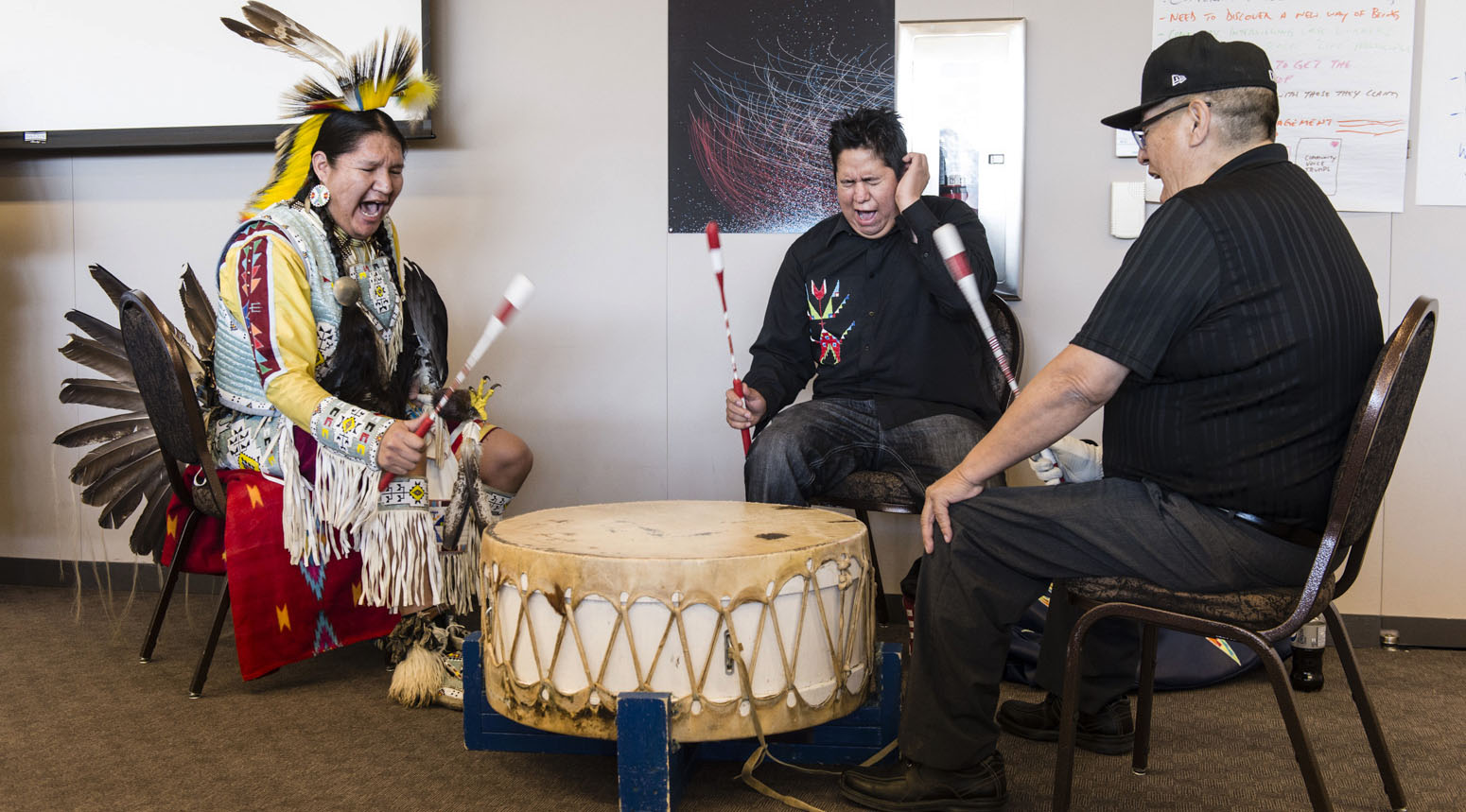What You Can Watch, Listen and Read to Learn More About Truth and Reconciliation

Banff Centre for Arts and Creativity is proud to host a sold out Truth and Reconciliation Summit on campus on October 29. Participants will hear keynote speeches from Truth and Reconciliation Commissioner, Dr. Marie Wilson and former National Chief, Phil Fontaine, among others, and will discuss ways they can bring the Commission’s 94 calls to action to life in the community.
Whether you’ll be attending the Truth and Reconciliation Summit yourself, watching the livestream on our YouTube channel from home, or are just curious about reconciliation and what you can do, here are some great examples of books, films, podcasts and music that reveal truth, inspire reconciliation, and celebrate Indigenous Canadians.
Honouring the Truth, Reconciling for the Future: Summary of the Final Report of the Truth and Reconciliation Commission of Canada + 94 Calls to Action

Image via TRCReadingChallenge.com
First, read this.
The most important documents you can read to understand truth and participate in reconciliation are the Truth and Reconciliation Commission of Canada’s final report and 94 Calls to Action. In order to improve your relationship with First Nations, Metis, and Inuit people, you must first listen deeply to their truths. Join the thousands of Canadians who have signed up for the TRC Reading Challenge and committed to take the first step toward reconciliation. There’s even an audio version available of the history section of the summary.
The Comeback: How Aboriginals Are Reclaiming Power and Influence, by John Ralston Saul
Read this to learn about treaty rights and how to be a partner in reconciliation.
Saul argues that guilt and sympathy are only a way of avoiding the real issues at hand, and that they don’t stir people to action. Instead, he believes it’s most important to understand fundamental rights. In The Comeback, Saul provides an account of the historic treaties signed between the Crown and First Nations, how treaties were broken, and how the Supreme Court is confirming the authority of Indigenous people and their leaders today. The book provides an optimistic take on the return of power, respect, and influence of Indigenous Canadians.
The Reason You Walk: A Memoir, by Wab Kinew
Read this to witness one man’s very personal journey of discovering truth, and a father-son reconciliation.
In The Reason You Walk, First Nations broadcaster, musician, and activist Wab Kinew revisits his childhood and his difficult relationship with his father, an Anishinaabe chief who was physically and sexually abused in residential school. Hailed by the Globe and Mail as a “meditation on the purpose of living,” Kinew’s brutally honest storytelling reveals the effects of intergenerational trauma, and what it takes to forgive.
Reconciliation is not something realized on a grand level, something that happens when a prime minister and a national chief shake hands. It takes place at a much more individual level. Reconciliation is realized when two people come together and understand that what they share unites them and that what is different between them needs to be respected.
Excerpt, "The Reason You Walk"
Indian Horse, by Richard Wagamese

Read this for a look at two inescapable components of Canadian identity: ice hockey and residential schools.
This novel by journalist and author Richard Wagamese tells the story of Saul Indian Horse, an Ojibway boy who survives residential school and grows up to become a hockey star. Winner of the Canada Reads People’s Choice Award, Wagamese has been praised for his ability to show the “how” of something.
“He shows how it feels to uncover in oneself unexpected power and also to acknowledge amazing betrayal” -Jane Smiley, Globe and Mail.
Wagamese won Grand Prize at the 2015 Banff Mountain Book Competition for his book, Medicine Walk. Check out this interview from one of Wagamese’s recent trips to Banff in which he shares why he believes that storytelling has the power to heal emotional wounds.
Islands of Decolonial Love, by Leanne Simpson
Read these short stories to experience a touching look into life in contemporary Indigenous communities.
This collection of short stories by Leanne Simpson presents the unique experiences of modern Indigenous people living on reserves, in cities, and small towns. Simpson’s portraits of contemporary characters present voices that are rarely heard in the media. We were fortunate to have Simpson perform her beautiful stories as spoken word here at Banff Centre in the Fall of 2015, and an audio recording is available online, which pairs Simpson’s work with cutting-edge Indigenous musicians.
Elder in the Making, Directed by Chris Hsiung, Co-Produced by Cowboy Smithx
Watch this to learn about Southern Albertan history on Treaty 7 territory.
In their funny and illuminating film, Director Chris Hsiung and Co-Producer Cowboy Smithx embark on a journey to explore Blackfoot territory. Offering a historical account of Treaty 7 and what it means to be treaty people, the film was inspired by the Making Treaty 7 Cultural Society, a group of people bringing the stories of Aboriginals to the spotlight, who have workshopped at Banff Centre.
Unreserved, Hosted by Rosanna Deerchild on CBC
Listen to this podcast for your weekly dose of Indigenous conversation and culture.
Hosted by Cree broadcaster, author, and poet Rosanna Deerchild, Unreserved takes listeners behind the scenes on news, community, and culture stories from across Canada. A real-talk show with episodes airing every Sunday and Tuesday, there’s always something new to learn or celebrate from our Indigenous communities.
Eya-Hey Nakoda

Eya-Hey Nakoda performs during the Excellence in Indigenous Leadership and Management Certificate ceremony at Banff Centre
Listen for energizing traditional singing and drumming that makes you want to get up and move.
Formed in 1994 by Rod Hunter, Eya-Hey Nakoda is an award-winning intergenerational Stoney Nakoda powwow group. The group size varies, and whether they have five or 15 of their singers and drummers performing, you’re sure to get a boost from this group who are part of the soundtrack to the film Elder in the Making (listed above). We have a special connection to the Eya-Hey Nakoda drummers here at Banff Centre, as they perform at our Excellence in Indigenous Leadership and Management Certificate ceremony every spring.
Spirits of the Rockies: Reasserting an Indigenous Presence in Banff National Park, by Courtney W. Mason; foreword by Roland Rollinmud and Ian A. L. Getty
Read this to discover insights about Banff National Park and First Nations.
Mason worked closely with Stoney Elders to write this account of Indigenous people in Canada’s first national park. Including maps, portraits, and illustrations, Spirits of the Rockies explores colonial encounters, Treaty 7, Banff Indian Days, and more. With a foreword by Indigenous Leadership and Management program, Elder Roland Rollinmud, Spirits of the Rockies will make you think differently about the land residents and visitors walk every day in Banff National Park.
This is just a small sample of the hundreds of works by Canadian authors, filmmakers, and musicians that can help you understand truth and take part in reconciliation. We encourage you to share your own favourite works in the comment section below. To discover more incredible work celebrating Indigenous arts and culture, check out Banff Centre’s Indigenous Arts programming, including more incredible Indigenous artists like Joseph Boyden and Angela Loft.